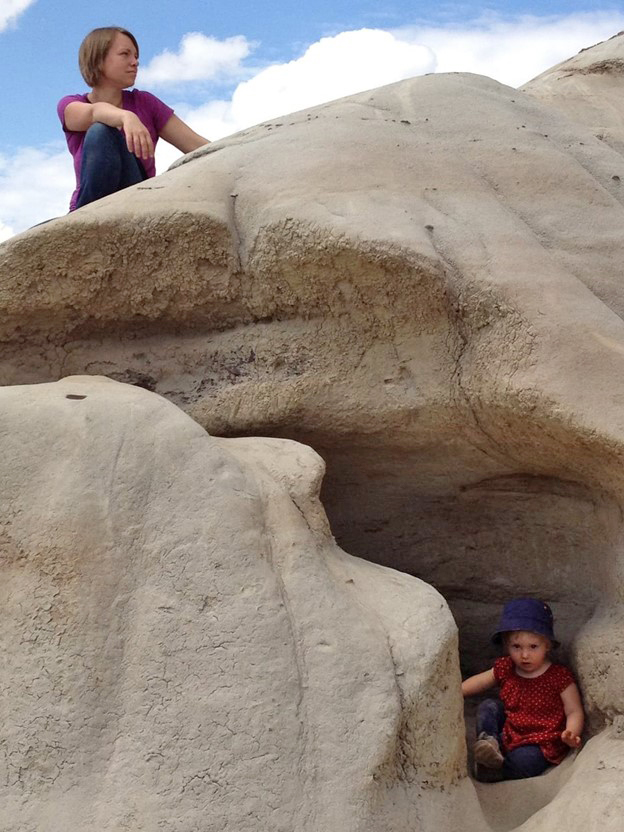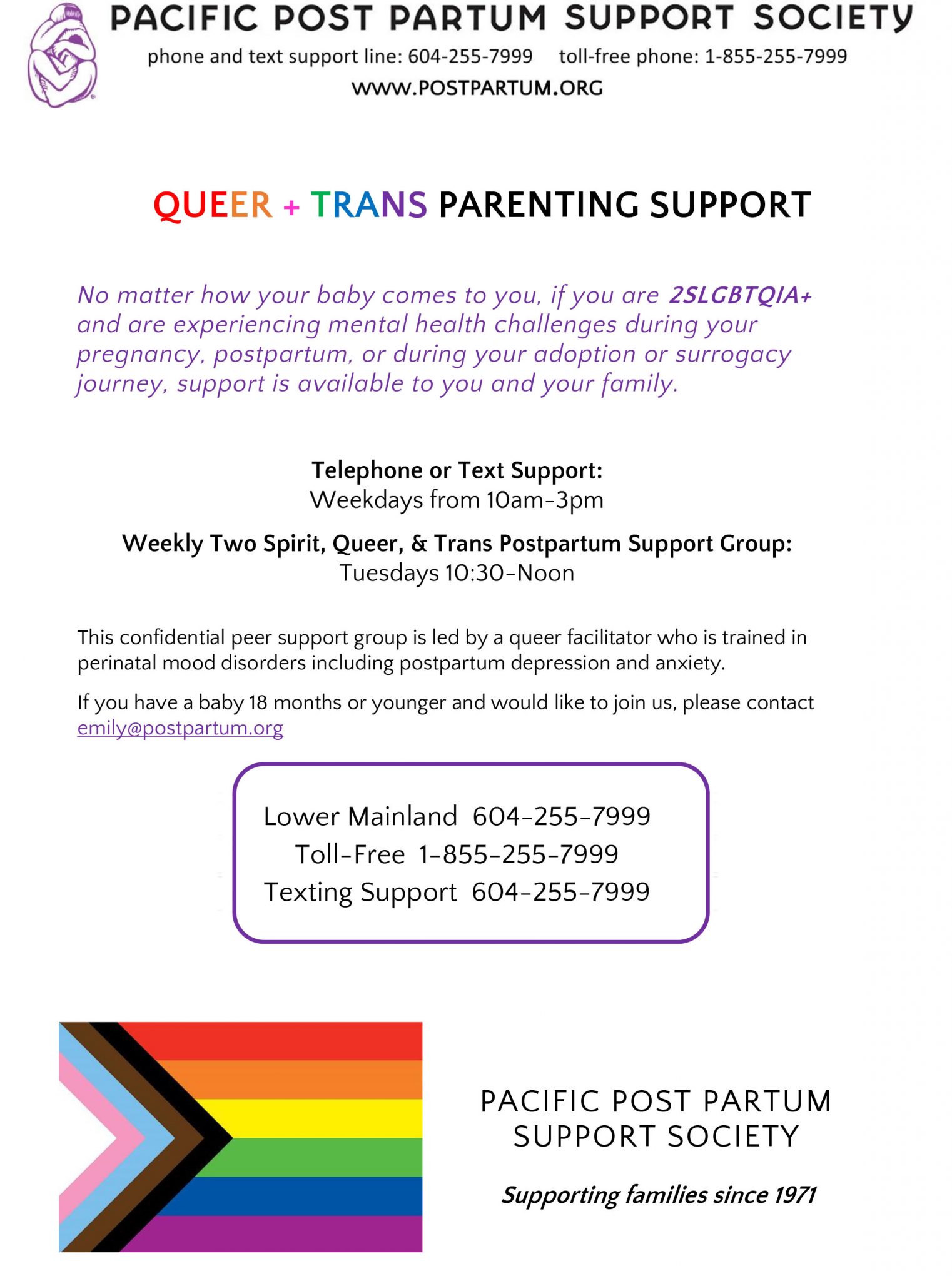No matter how your baby comes to you, if you are 2SLGBTQIA+ and are experiencing mental health challenges during your pregnancy, postpartum, or during your adoption or surrogacy journey, support is available to you and your family.
Telephone or Text Support: Weekdays from 10am-3pm
Weekly Two Spirit, Queer, & Trans Postpartum Support Group:
Tuesdays 10:30-Noon
Lower Mainland 604-255-7999 Toll-Free 1-855-255-7999
Texting Support 604-255-7999

Our blog post today is by Emily Garner
I’m a support worker at Pacific Post Partum Support Society, but I’m also a queer mom who struggled during my postpartum period. For much of my postpartum experience I struggled quietly and in secret. I was so lonely. I’m sharing a bit of my story with you in case you need to hear that you are not alone, in case you need to hear that it’s okay to be a 2SLGBTQIA+ parent who struggles with the transition to parenthood.
I knew having babies would change me. I expected sleeplessness and cold cups of tea left untouched, but what I didn’t expect was how motherhood would shift my experience of being Queer.
When I finally got pregnant, I found myself immersed in an unfamiliar and heteronormative world of ultrasound appointments and glucose testing where technicians would ask after my husband and wonder aloud if I was having boys or girls or one of each. In those moments I’d consider telling them that, gender doesn’t always work that way, that my babies’ other parent is a non-binary spermless wonder with kind eyes and fierce sense of justice, but I never did. It was too much work to explain, too much exposure for a fifteen-minute interaction with a stranger.
While strangers erased my queer visibility, my relatives brought it to the dinner table. “Who’s the father?” They would ask. “Which one of you will be the mom?” “What about a male role-model?”
I thought I was prepared for the challenge of creating a family that did not fit social expectations, but I was wrong. I was not as immune to the pain of discrimination as I thought.
When my babies were born, I did everything I could to prove to the world that I was a good mother: I made kale chips and quinoa, I made muffins with the eggs of my backyard chickens, I wore one baby on the front and one on the back so they could develop a strong sense of attachment – I needed people to know that being queer didn’t exclude me from being a good mother, so when my mental health became unstable, when anxiety took hold and anger ripped through me – I hid it.
I was scared to ask for help, scared that I would confirm the homophobic notion that queer folks shouldn’t parent, scared that even if I did reach out, the people on the other end wouldn’t understand my family. Eventually things got so bad I couldn’t hide it anymore. I ended up on a therapist’s couch saying things aloud that I had never said to anyone else. It was there that I finally allowed myself to be an imperfect mother. It was there that I learned how to heal. I needed support to get better.
Support is so important for new parents. Now that I work at Pacific Post Partum, I am lucky to be able to hear your stories. Together we share the good, the bad, and the ugly parts of parenting. If you or someone you love could benefit from a conversation or group support, please reach out.
